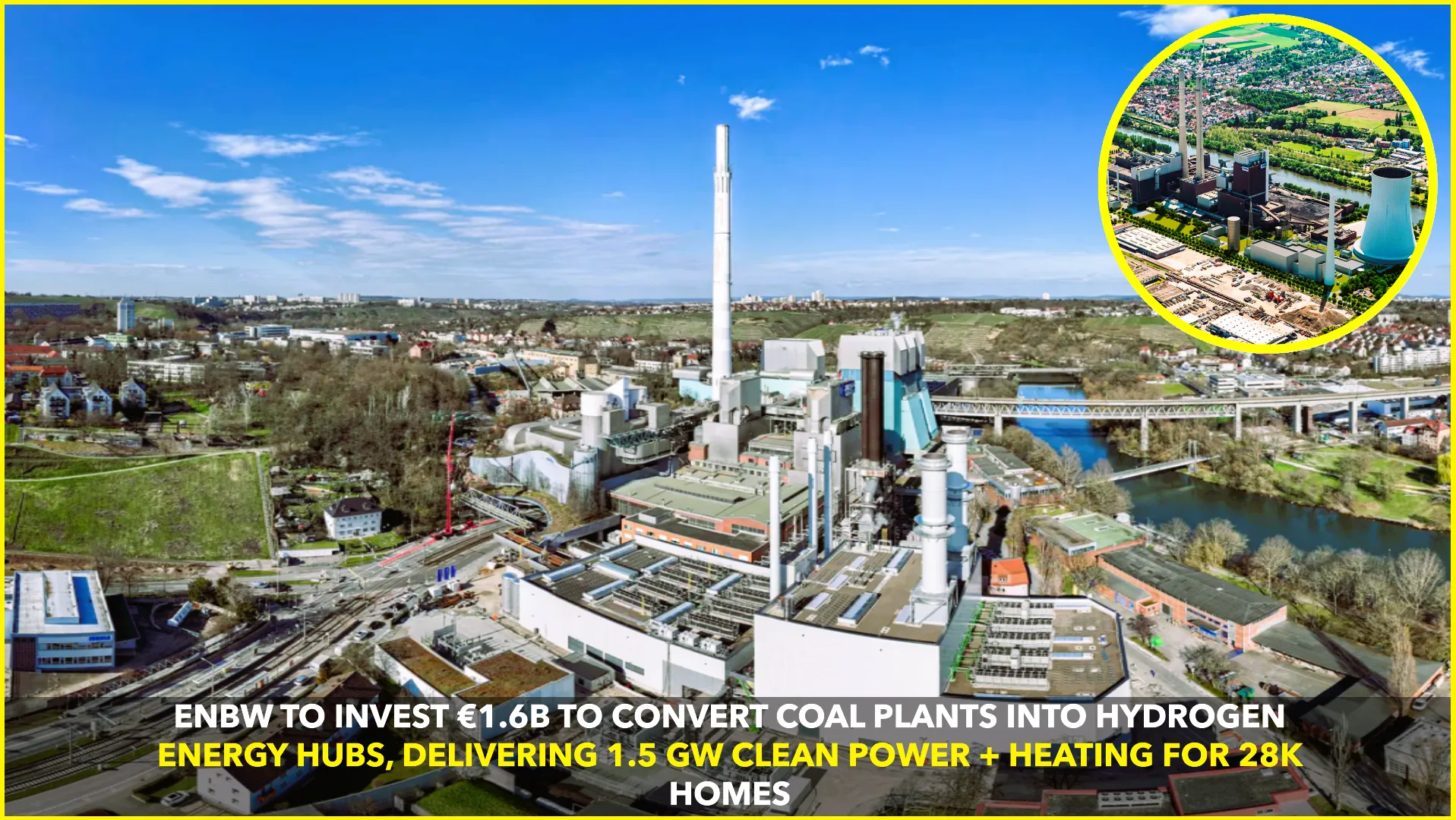In a bold move toward cleaner energy, German utility giant EnBW (Energie Baden-Württemberg AG) has announced an ambitious €1.6 billion investment to convert three of its coal-fired power plants into hydrogen-ready facilities. Located in Stuttgart-Münster, Altbach/Deizisau, and Heilbronn, the plants will be retrofitted to produce 1.5 gigawatts (GW) of electricity and provide district heating to more than 28,000 households and businesses.
The transformation marks a major step in Germany’s energy transition as it phases out coal and nuclear power while striving to meet ambitious climate goals. The upgraded plants will initially run on natural gas blended with hydrogen, with the ultimate goal of operating on 100% green hydrogen by the mid-2030s.
Siemens Energy to Supply Turbines
EnBW has partnered with Siemens Energy, which will provide advanced gas turbines capable of handling up to 100% hydrogen fuel. These turbines will allow a gradual transition from natural gas to hydrogen, minimizing emissions while ensuring a stable energy supply.
Siemens’ turbines are part of its latest HL-class series, known for high efficiency and low CO₂ output. The company stated that the turbines can already operate with up to 50% hydrogen mix and will be upgraded to accommodate pure hydrogen within a decade.
Greener Power and District Heating
The three facilities will contribute 1.5 GW of cleaner energy to the grid—enough to power hundreds of thousands of homes—while also supporting regional district heating networks. In particular, the Stuttgart-Münster plant will supply heat and electricity to densely populated urban areas, a critical move as Germany prepares to retire its coal fleet by 2038.
EnBW confirmed that more than 28,000 homes and commercial customers will benefit from the clean heating generated by the upgraded plants, reducing their carbon footprints significantly.
Hydrogen Future for Germany
Hydrogen is seen as a cornerstone of Germany’s long-term decarbonization strategy. By retrofitting existing coal plants, EnBW is avoiding the high costs and time involved in building entirely new infrastructure. Instead, it is leveraging current grid connections, sites, and cooling systems to accelerate the green transition.
EnBW board member Georg Stamatelopoulos stated:
“We are building the bridge to a climate-neutral energy system. These plants will secure our power supply while paving the way for 100% hydrogen operation.”
The company also confirmed that construction will begin in 2026, with the first plants expected to be operational by 2029.
Government and Industry Support
The German federal government and regional authorities have welcomed the announcement, citing it as a blueprint for how industrialized nations can convert legacy infrastructure for the green energy age.
Germany aims to become a global leader in hydrogen production and usage. The country’s National Hydrogen Strategy, backed by billions in funding, envisions the widespread use of hydrogen in power, transportation, and industry by 2045.
By combining clean energy generation with large-scale district heating, EnBW’s project is expected to play a pivotal role in reducing Germany’s greenhouse gas emissions while ensuring energy security amid geopolitical and climate uncertainties.
Sources:
- EnBW Official Press Release: www.enbw.com
- Siemens Energy: www.siemens-energy.com
- Reuters, “Germany’s EnBW to Replace Coal with Hydrogen-Ready Plants”, June 2025










